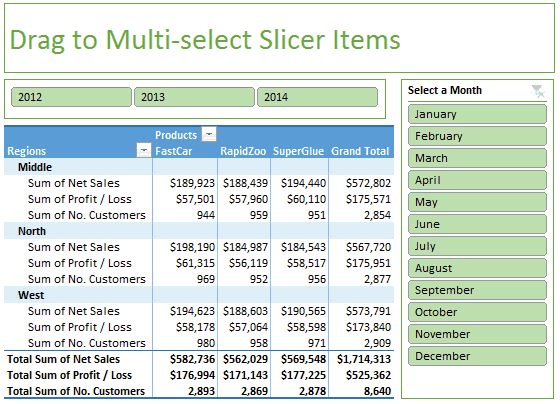
LinkedIn Influencer, Dr. Travis Bradberry, published this post originally
When emotional intelligence (EQ) first appeared to the masses, it served as the missing link in a peculiar finding: people with average IQs outperform those with the highest IQs 70% of the time. This anomaly threw a massive wrench into the broadly held assumption that IQ was the sole source of success.
Decades of research now point to emotional intelligence as being the critical factor that sets star performers apart from the rest of the pack. The connection is so strong that 90% of top performers have high emotional intelligence.
Emotional intelligence is the "something" in each of us that is a bit intangible. It affects how we manage behavior, navigate social complexities, and make personal decisions to achieve positive results.
Despite the significance of EQ, its intangible nature makes it very difficult to know how much you have and what you can do to improve if you're lacking. You can always take a scientifically validated test, such as the one that comes with theEmotional Intelligence 2.0 book.
Unfortunately, quality (scientifically valid) EQ tests aren't free. So, I've analyzed the data from the million-plus people TalentSmart has tested in order to identify the behaviors that are the hallmarks of a high EQ. What follows are sure signs that you have a high EQ.
You Have a Robust Emotional Vocabulary
All people experience emotions, but it is a select few who can accurately identify them as they occur. Our research shows that only 36% of people can do this, which is problematic because unlabeled emotions often go misunderstood, which leads to irrational choices and counterproductive actions.
People with high EQs master their emotions because they understand them, and they use an extensive vocabulary of feelings to do so. While many people might describe themselves as simply feeling "bad," emotionally intelligent people can pinpoint whether they feel "irritable," "frustrated," "downtrodden," or "anxious." The more specific your word choice, the better insight you have into exactly how you are feeling, what caused it, and what you should do about it.
You're Curious about People
It doesn't matter if they're introverted or extroverted, emotionally intelligent people are curious about everyone around them. This curiosity is the product of empathy, one of the most significant gateways to a high EQ. The more you care about other people and what they're going through, the more curiosity you're going to have about them.
You Embrace Change
Emotionally intelligent people are flexible and are constantly adapting. They know that fear of change is paralyzing and a major threat to their success and happiness. They look for change that is lurking just around the corner, and they form a plan of action should these changes occur.
You Know Your Strengths and Weaknesses
Emotionally intelligent people don't just understand emotions; they know what they're good at and what they're terrible at. They also know who pushes their buttons and the environments (both situations and people) that enable them to succeed. Having a high EQ means you know your strengths and you know how to lean into them and use them to your full advantage while keeping your weaknesses from holding you back.
You're a Good Judge of Character
Much of emotional intelligence comes down to social awareness; the ability to read other people, know what they're about, and understand what they're going through. Over time, this skill makes you an exceptional judge of character. People are no mystery to you. You know what they're all about and understand their motivations, even those that lie hidden beneath the surface.
You Are Difficult to Offend
If you have a firm grasp of whom you are, it's difficult for someone to say or do something that gets your goat. Emotionally intelligent people are self-confident and open-minded, which creates a pretty thick skin. You may even poke fun at yourself or let other people make jokes about you because you are able to mentally draw the line between humor and degradation.
You Know How to Say No (to Yourself and Others)
Emotional intelligence means knowing how to exert self-control. You delay gratification, and you avoid impulsive action. Research conducted at the University of California, San Francisco, shows that the more difficulty that you have saying no, the more likely you are to experience stress, burnout, and even depression. Saying no is indeed a major self-control challenge for many people. "No" is a powerful word that you should not be afraid to wield. When it's time to say no, emotionally intelligent people avoid phrases such as "I don't think I can" or "I'm not certain." Saying no to a new commitment honors your existing commitments and gives you the opportunity to successfully fulfill them.
You Let Go of Mistakes
Emotionally intelligent people distance themselves from their mistakes, but do so without forgetting them. By keeping their mistakes at a safe distance, yet still handy enough to refer to, they are able to adapt and adjust for future success. It takes refined self-awareness to walk this tightrope between dwelling and remembering. Dwelling too long on your mistakes makes you anxious and gun shy, while forgetting about them completely makes you bound to repeat them. The key to balance lies in your ability to transform failures into nuggets of improvement. This creates the tendency to get right back up every time you fall down.
You Give and Expect Nothing in Return
When someone gives you something spontaneously, without expecting anything in return, this leaves a powerful impression. For example, you might have an interesting conversation with someone about a book, and when you see them again a month later, you show up with the book in hand. Emotionally intelligent people build strong relationships because they are constantly thinking about others.
You Don't Hold Grudges
The negative emotions that come with holding onto a grudge are actually a stress response. Just thinking about the event sends your body into fight-or-flight mode, a survival mechanism that forces you to stand up and fight or run for the hills when faced with a threat. When the threat is imminent, this reaction is essential to your survival, but when the threat is ancient history, holding onto that stress wreaks havoc on your body and can have devastating health consequences over time. In fact, researchers at Emory University have shown that holding onto stress contributes to high blood pressure and heart disease. Holding onto a grudge means you're holding onto stress, and emotionally intelligent people know to avoid this at all costs. Letting go of a grudge not only makes you feel better now but can also improve your health.
You Neutralize Toxic People
Dealing with difficult people is frustrating and exhausting for most. High EQ individuals control their interactions with toxic people by keeping their feelings in check. When they need to confront a toxic person, they approach the situation rationally. They identify their own emotions and don't allow anger or frustration to fuel the chaos. They also consider the difficult person's standpoint and are able to find solutions and common ground. Even when things completely derail, emotionally intelligent people are able to take the toxic person with a grain of salt to avoid letting him or her bring them down.
You Don't Seek Perfection
Emotionally intelligent people won't set perfection as their target because they know that it doesn't exist. Human beings, by our very nature, are fallible. When perfection is your goal, you're always left with a nagging sense of failure that makes you want to give up or reduce your effort. You end up spending your time lamenting what you failed to accomplish and what you should have done differently instead of moving forward, excited about what you've achieved and what you will accomplish in the future.
You Appreciate What You Have
Taking time to contemplate what you're grateful for isn't merely the right thing to do; it also improves your mood because it reduces the stress hormone cortisol by 23%. Research conducted at the University of California, Davis, found that people who worked daily to cultivate an attitude of gratitude experienced improved mood, energy, and physical well-being. It's likely that lower levels of cortisol played a major role in this.
You Disconnect
Taking regular time off the grid is a sign of a high EQ because it helps you to keep your stress under control and to live in the moment. When you make yourself available to your work 24/7, you expose yourself to a constant barrage of stressors. Forcing yourself offline and even—gulp!—turning off your phone gives your body and mind a break. Studies have shown that something as simple as an e-mail break can lower stress levels. Technology enables constant communication and the expectation that you should be available 24/7. It is extremely difficult to enjoy a stress-free moment outside of work when an e-mail that will change your train of thought and get you thinking (read: stressing) about work can drop onto your phone at any moment.
You Limit Your Caffeine Intake
Drinking excessive amounts of caffeine triggers the release of adrenaline, and adrenaline is the source of the fight-or-flight response. The fight-or-flight mechanism sidesteps rational thinking in favor of a faster response to ensure survival. This is great when a bear is chasing you, but not so great when you're responding to a curt e-mail. When caffeine puts your brain and body into this hyper-aroused state of stress, your emotions overrun your behavior. Caffeine's long half-life ensures you stay this way as it takes its sweet time working its way out of your body. High-EQ individuals know that caffeine is trouble, and they don't let it get the better of them.
You Get Enough Sleep
It's difficult to overstate the importance of sleep to increasing your emotional intelligence and managing your stress levels. When you sleep, your brain literally recharges, shuffling through the day's memories and storing or discarding them (which causes dreams) so that you wake up alert and clearheaded. High-EQ individuals know that their self-control, attention, and memory are all reduced when they don't get enough—or the right kind—of sleep. So, they make sleep a top priority.
You Stop Negative Self-Talk in Its Tracks
The more you ruminate on negative thoughts, the more power you give them. Most of our negative thoughts are just that—thoughts, not facts. When it feels like something always or never happens, this is just your brain's natural tendency to perceive threats (inflating the frequency or severity of an event). Emotionally intelligent people separate their thoughts from the facts in order to escape the cycle of negativity and move toward a positive, new outlook.
You Won't Let Anyone Limit Your Joy
When your sense of pleasure and satisfaction are derived from the opinions of other people, you are no longer the master of your own happiness. When emotionally intelligent people feel good about something that they've done, they won't let anyone's opinions or snide remarks take that away from them. While it's impossible to turn off your reactions to what others think of you, you don't have to compare yourself to others, and you can always take people's opinions with a grain of salt. That way, no matter what other people are thinking or doing, your self-worth comes from within.



 Use F2 key to edit any cell with formulas. This will put the cursor right the end of the formula.
Use F2 key to edit any cell with formulas. This will put the cursor right the end of the formula.













